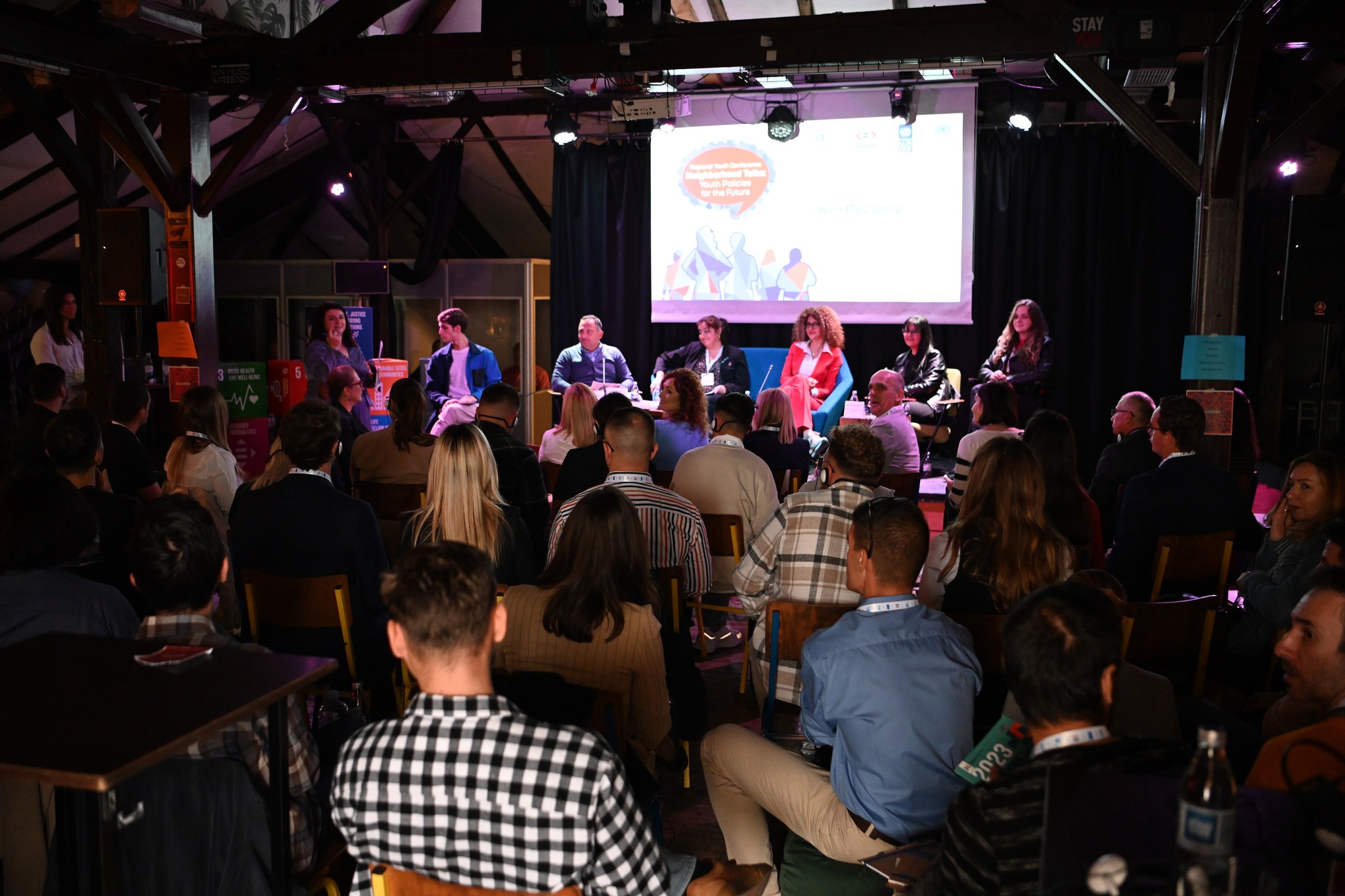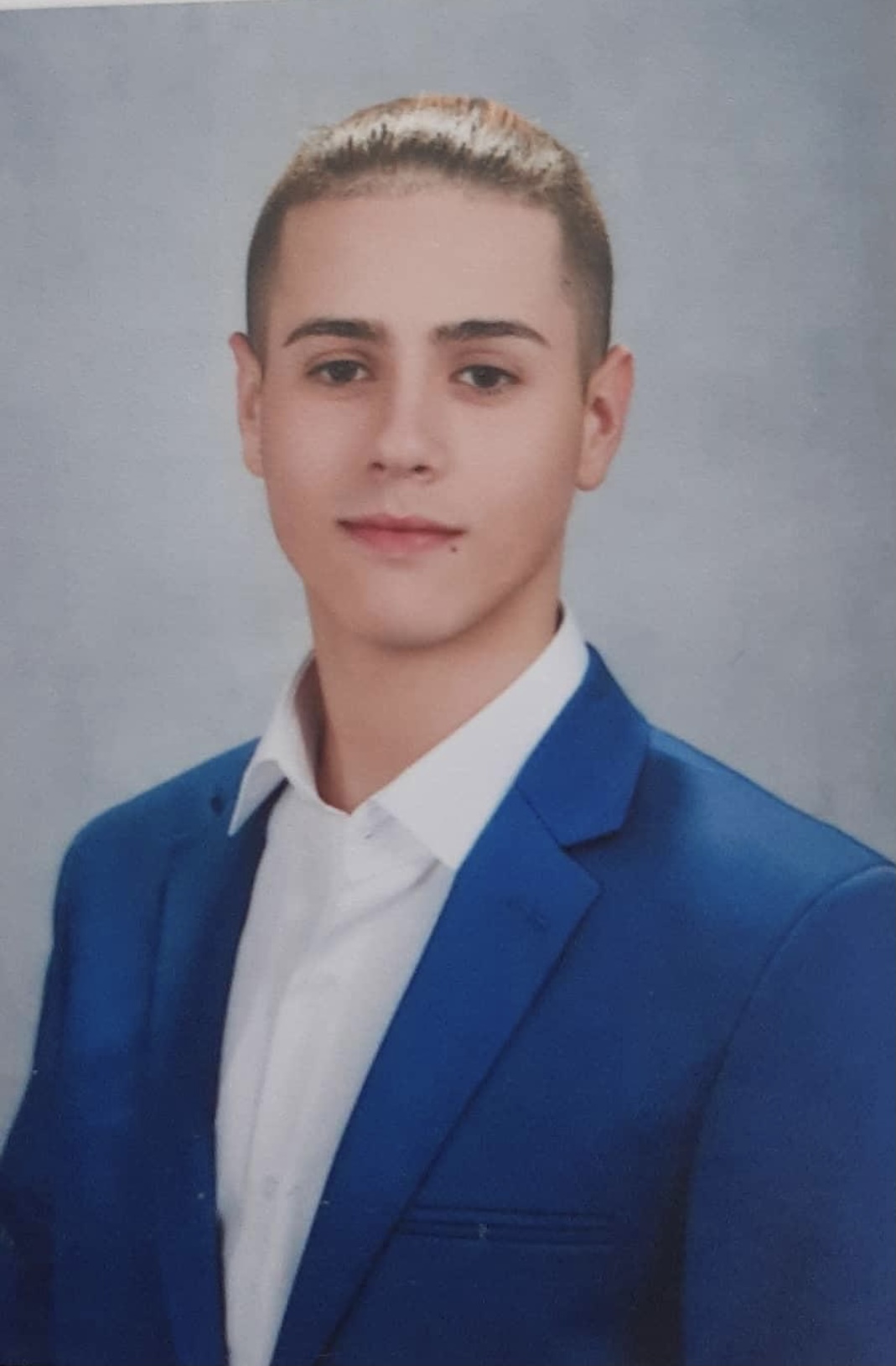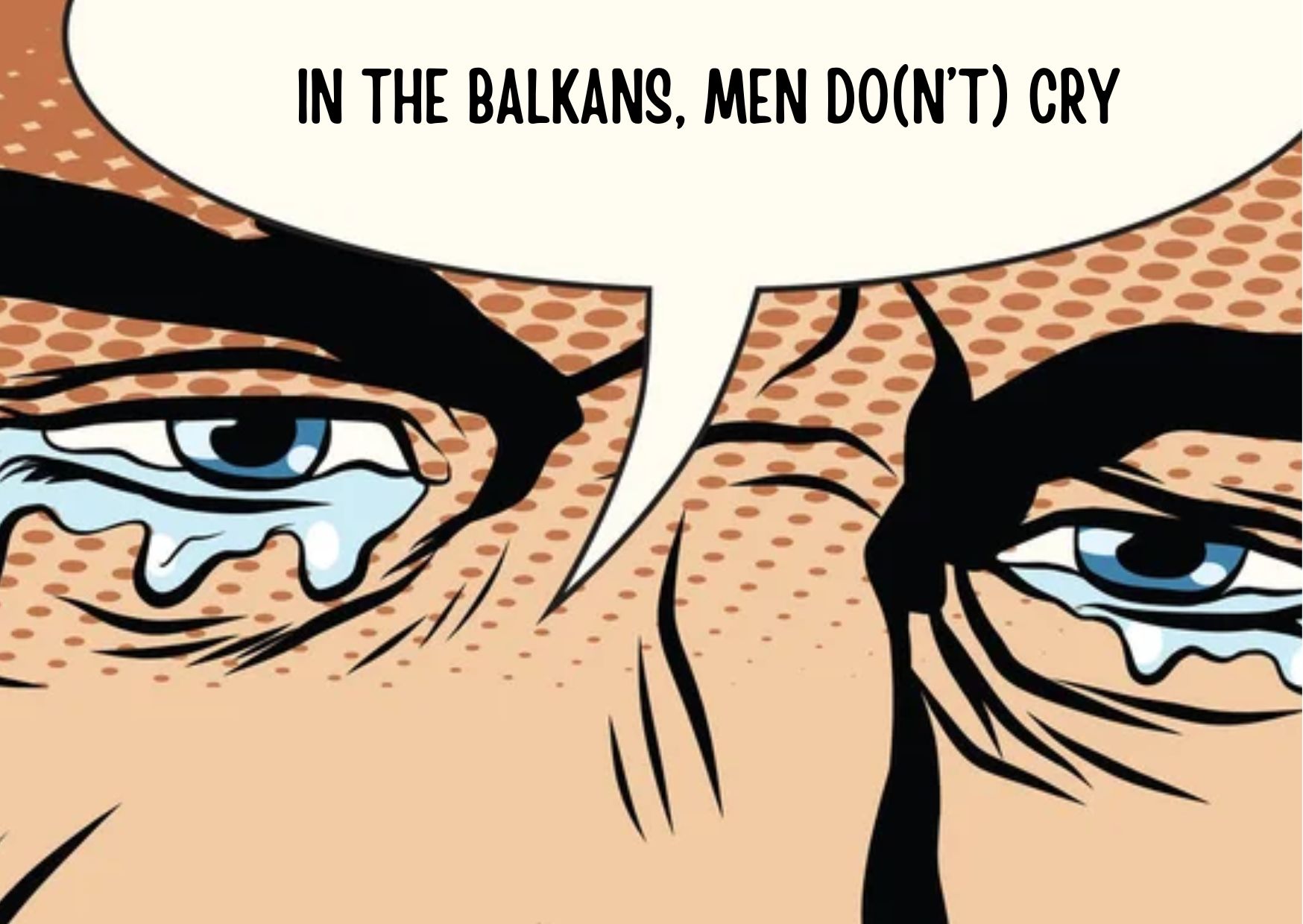Between Formal and Informal Education
Educational institutions represent the second home for raising and educating young people. Beyond these formal settings, social gatherings outside educational institutions act as "parallel institutions" for the education and development of youth. During their free time, young people engage in various forms of entertainment, such as going to cafes, cinemas, theaters, participating in workshops, and attending parties, events, and trips. Very often it happens that young people spend their time abroad, for travel, study or work. Within the framework of formal education, students have the opportunity to travel and study abroad through the Erasmus program. Many young individuals from North Macedonia also use the opportunity of work and travel programs, allowing them to work abroad during the three-month summer period, followed by one month of travel. This program is viewed as a chance to explore abroad, visit new places, and learn about different cultures, and for some of them represents an opportunity to find employment beyond the program's framework and stay abroad longer. Motivated by the aspiration to explore new perspectives, many young individuals, using public scholarships or private funds, pursue education in other places, with the hope that, upon completing their studies, they can secure employment abroad.
Studying abroad for students represents a life adventure, but also an opportunity to connect with other cultures and enrich their personal and professional biography. If young people choose to return back after completing their studies abroad, it is a benefit locally, but unfortunately, many young individuals go abroad with the intention of settling there, and in such cases, their contracting party stands as the primary loser in this migration trend of work and study abroad.
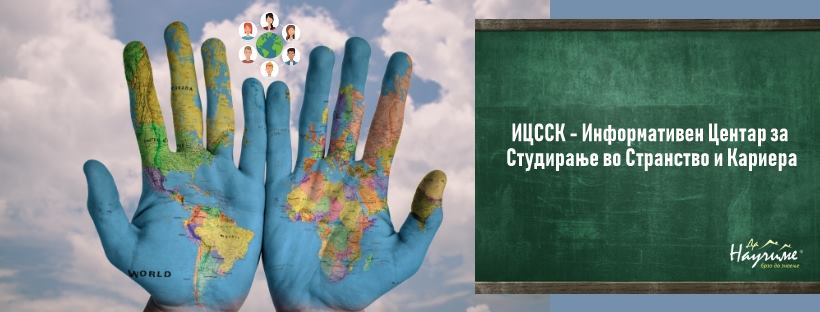
According to data from the research titled Youth, migration and education conducted in 2020, the migration trend among the young population in N. Macedonia, particularly in the age group of 15-25 is influenced by educational factors, especially at the secondary and tertiary level. The most common reasons include political instability, bad economic policy, wars, and as the primary factor, the high level of unemployment and poverty. The majority of young people perceive a better life in other places through the prism of better education, career advancement, and greater opportunities for employment. The survey questionnaires completed by young people up to 35 years of age (high school students and students) establish that poor economic situation is the primary factor that causes young people to leave.
According to the data of the State Statistics Office of N. Macedonia in the academic year 2021/2022, universities in N. Macedonia have enrolled 1600 students less than in previous years. Reasons often cited include distrust in domestic universities, i.e. bad international rating, scandals with fake diplomas, efforts to improve the educational status only on paper, low-quality education, and lack of appreciation of student work. For these reasons every year more than 1500 students leave North Macedonia to study abroad. According to the Health Insurance Fund of N. Macedonia in 2022, 1533 certificates for use of health services abroad were issued, with Slovenia being the most popular destination (1211), followed by Germany (77), Italy (43) Turkey (37), Serbia (35) Croatia (34), Bulgaria (27) and Austria (19).
On January 24, 2022, the State Election Commission for the Prevention of Corruption organized a public debate on the topic of Integrity in higher education - Encouraging the fight against corruption. The main conclusion of the public debate highlighted the need to establish a strong coalition between students, the academic community, and institutions; strengthening the financial independence of universities; raising work standards, and improving the legal framework. These steps are considered the key factors in improving the integrity of higher education institutions, reducing corruption and nepotism, as well as suppressing clientelistic relations in higher education. At the debate, it was also established that the problem with corruption in higher education originates from a lack of research on it.
On the 25th and 26th of October 2023, within the framework of the United Nations Development Program (UNDP), a regional conference on youth policies and constructive narratives at the local level, was held in Skopje, entitled Youth neighborhood dialogues - Now for the future. More than fifty young people took part in this two-day event and debated on topics such as measures for youth in municipalities, youth participation at the local level, and youth spaces. The main goal of this conference was to create a space for open dialogue, to share regional knowledge, and to share experiences on involving young people in decision-making, but also to open up issues related to hate speech, discrimination, freedom of expression, gender equality, respect for diversity and constructive narratives among young people.
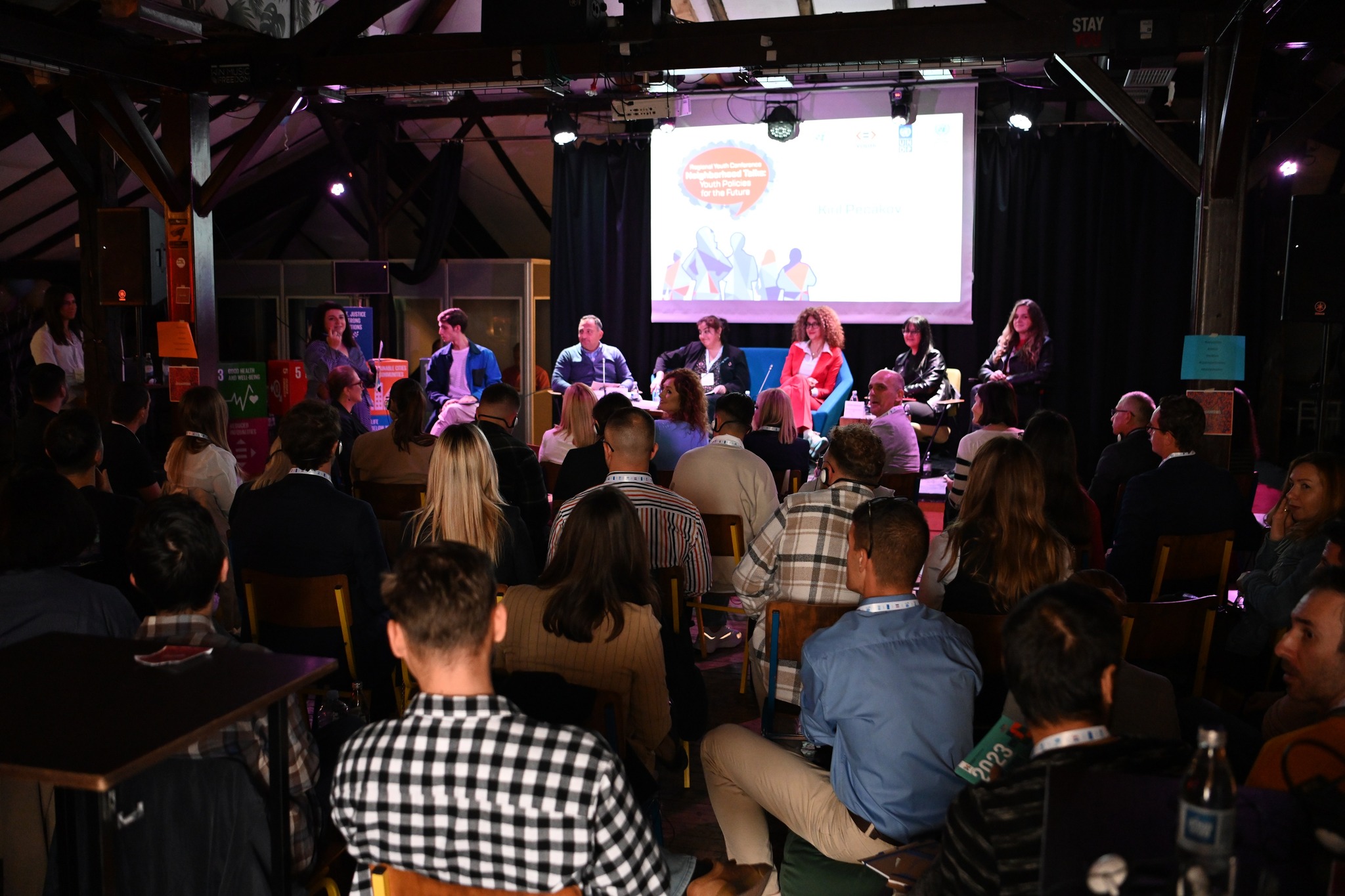
At this event, the documentary film My, Yours, Our Streets was shown, in which young people from three cities - Bitola, Veles, and Struga, talk about the differences that divide them, but very often connect young people.
(The documentary "My, Yours, Our Streets" is available with translation in three languages. The English version is available at the following link https://youtu.be/AzgNXJcTA_o )
“Youth participation in decision-making is key to shaping our society and economy in a sustainable direction and building a better future in accordance with the needs of young people, who are drivers of positive changes and bearers of fresh perspectives and innovative ideas. With a new look at long-standing issues, young people can bridge divisions, promote peace, encourage sustainable development, and build resilient communities” - said in her presentation, the permanent coordinator of the United Nations in North Macedonia, Rosana Dudžak.
Investing in young people through non-formal education and youth initiatives are also good examples to motivate young people to invest in their future. One of these initiatives in N. Macedonia is the National Youth Council of Macedonia (NMSM) established in 2013, which is also part of the European family of youth organizations, European Youth Forum EMF. The Council includes 16 youth organizations, 15 organizations for youth, 1 union, 6 youth groups of other organizations, and 8 associate members. Its primary goal is the promotion and representation of young people and their rights. One of its members, Mladite Mozhat (The Youth Can) this year was awarded in the category for youth organizations, organizations of youth, and umbrella organizations. This is the second time it has received this type of award, which indicates that by implementing a variety of activities its members know how to manage to respond to the youth problems and challenges. The next step of the Mladite Mozhat team is to organize training on the topic Through essential criticism to visible change. The aim of this training is to emphasize the importance of critical thinking related to the creation of potential solutions for visible changes in society. In this context is also announced creation of podcasts for young people, with the aim to create "Generation MM", with a vision that young people are creators of their future.
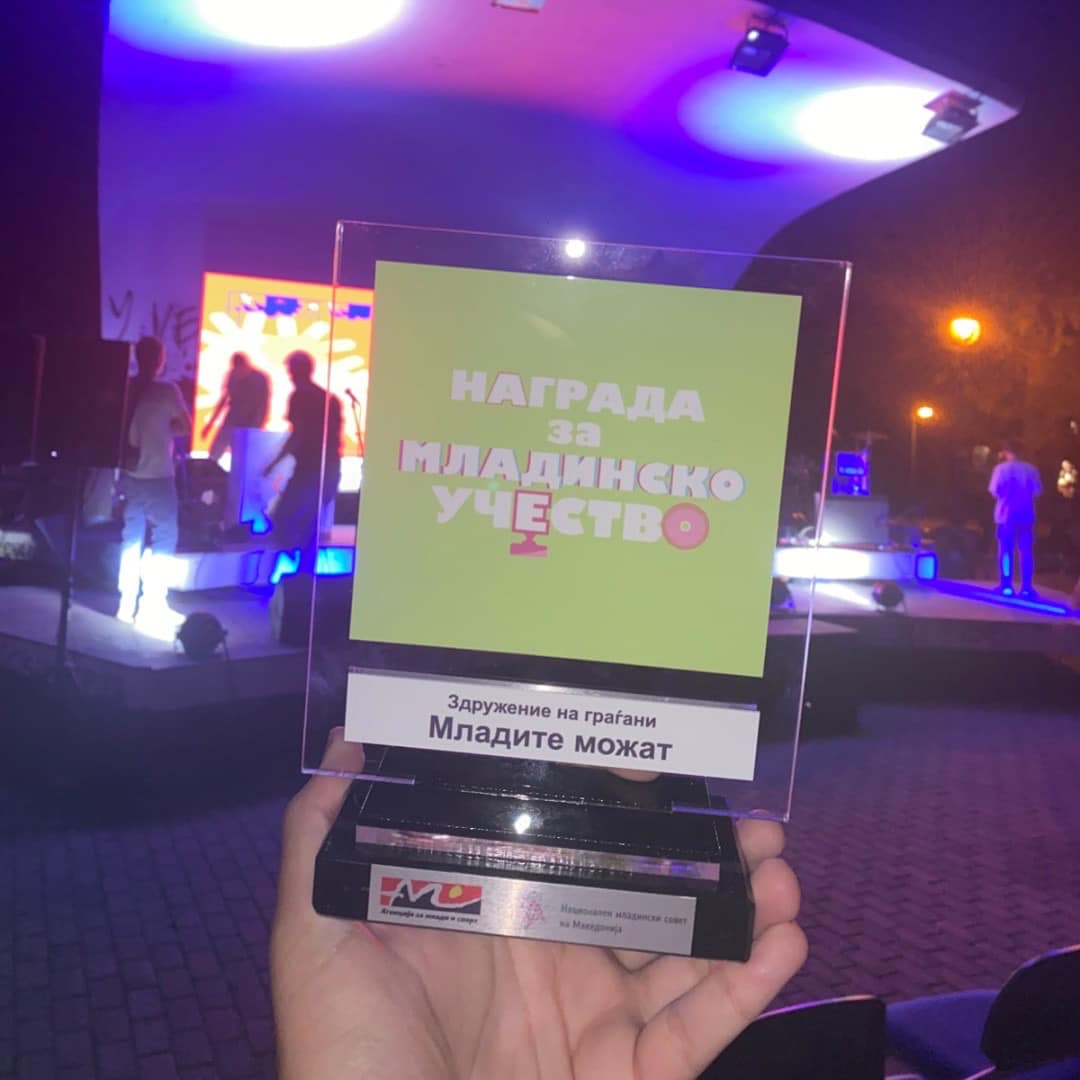
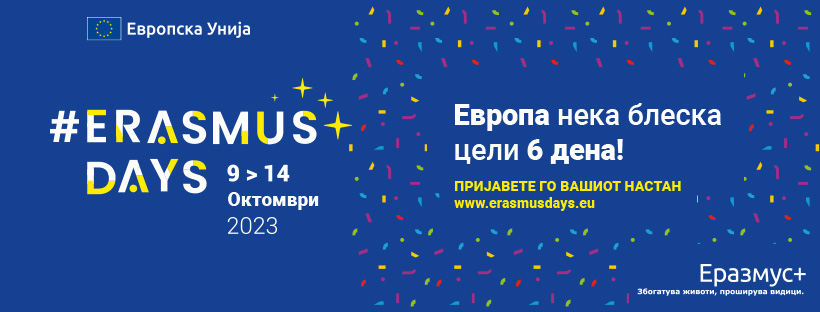
In addition to these local initiatives, there are also regional initiatives and programs, which offer the young people from the whole region the chance to collaborate and share their experiences with each other. One of these initiatives which is part of formal education is the Erasmus program. This academic year, Goce Delcev University, Stip, through the Erasmus program, received over 50 students from Spain, Italy, Poland, Turkey, and Lithuania, who have the opportunity to study and socialize with students and young people from N. Macedonia. In this context in the period between October 9th to October 14th this year, The National Agency for European Educational Programs and Mobility, organized the seventh edition of "Erasmus Days” with the motto Let Europe shine for six whole days. The participants of the event were educational institutions, training institutions, companies, agencies for employment, organizations, and non-governmental organizations that presented the projects of young people and shared the experiences of the beneficiaries of the Erasmus+ programs. This event was also an ideal opportunity to embrace the European values of tolerance, respect and diversity.
Another program that actively works on cooperation between young people on a regional level is the Regional Youth Cooperation Office (RYCO). The program aims to promote the spirit of reconciliation and to create a new opportunity to travel and explore the region and cooperate on shared projects in different fields such as culture, sport, environment, and many more.
Considering that during adolescence, young people are overwhelmed by an avalanche of feelings and emotions and exposed to the influences of television, movies, the music industry, and the internet, all these informal educational programs serve as good instruments for how to spend free time in a qualitative way. A United Nations report describes adolescence as a "transitional period usually characterized by stress and anxiety” and without proper guidance, the young can start to behave destructively because many dangers lurk. The numerous conferences, youth initiatives, and events that are organized both at the local and regional levels give me faith and hope for a perspective and a brighter future for the youth in N. Macedonia.
Having in mind that the future of any place depends on the vision of young people and their process of personal realization, the youth centers should grow into places that provide continuous education and systemic support for the personal development of young people and their active involvement in the community through informal education, fun, and volunteer activities, information, mentoring and counseling.
In other words, it is necessary to invest in the ability and development of young people not only through formal education but also through youth socializing initiatives. And most important of all: if each individual bears the burden of responsibility for contributing to the development of society and the regional environment, collective success will not be absent.
Resources:
Страшко Стојановски, Млади, миграции и образование, Универзитет Гоце Делчев, 2020
https://nms.org.mk/for-us/3nmsm
https://youthcan.org.mk/en/home-2/
